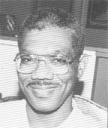
Brigadier (ret’d) David Granger told Stabroek News, in an invited comment, that remedial education and training had been done through the army’s educational department in the past, though he could not comment about the status of the programme now.
Granger made these remarks after Colonel Bruce Lovell on Monday announced that remedial classes would be held for recruits who failed the examination. Lovell made these comments in his address at the GDF/Ministry of Agriculture Swine Breeding Programme launch. A disturbing 17.3% pass rate was registered after 393 GDF applicants wrote an examination which is set at the level of the National Grade Six Assessment examination.
Last week Granger told this newspaper that he understood the army’s concern regarding the standard of applicants since although its human resources are important assets, the army still had to ensure that its ranks have obtained a certain level of education.
He explained that those who joined the force would usually give abut 25 years of service and by age 45 they were discharged. He added too that ranks had to be grounded so that they would be able to absorb the skills which the army offered including opportunities for becoming mechanics, medical orderlies and radio operators.
“So people who are not qualified should not be admitted,” he said. Granger noted that the Standard Education Test was set in the 1980s at the intellectual level of an 11-year-old, and at that time the GDF was challenged by the same dilemma. “But it would be a terrible mistake for the army to accept them like that and so the remedial work is a right thing to do,” he said. Granger said too that the army had recruited retired school teachers and as part of the course persons were required to do remedial education at the Colonel John Clarke Military School at Tacama. He suggested that the recruitment course should be extended not only for military training but also for educational purposes.
“All you need is a controlled environment at the military school … where they could be made to go through three months of educational training and the successful ones should go forward,” he said, adding that there was no need to ‘re-invent the wheel.’
Granger is a member of the board of trustees of the Guyana Veterans Foundation, and asked whether he felt his organization could assist in the army’s efforts, he said he felt the body was not equipped for such a task.
He reiterated that the remedial programme would need retired trained teachers, but he is confident that such a programme would see tremendous benefits in the next five to seven years.
The army announced that it was in the process of formulating a project for youths from depressed communities that would empower them by providing technical and vocational education in their communities after school hours. The programme would be implemented at schools or community centres.




